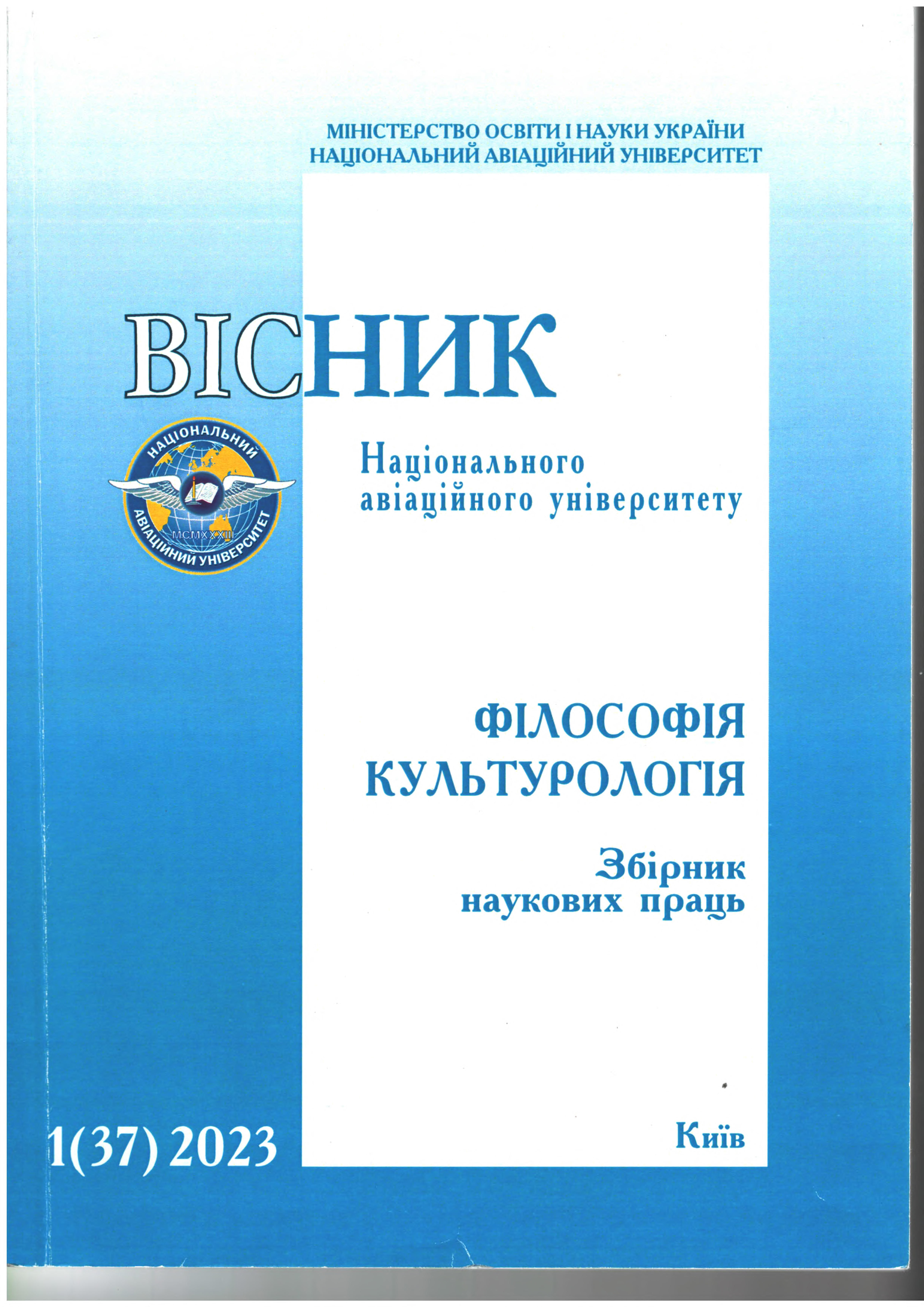SOCIAL AND PHILOSOPHICAL ANALYSIS OF THE INTERNET AS A SOCIAL INSTITUTION IN CONDITIONS OF INFORMATION SOCIETY DEVELOPMENT
DOI:
https://doi.org/10.18372/2412-2157.37.17575Keywords:
соціальний інститут, інституціалізація, Інтернет, інформаційне суспільство, інформаційно-комунікаційні технології, комп’ютерна мережа, інформація, комунікаціяAbstract
Introduction. In conditions of the information society development we are active observers and actors of the establishment and
functioning of a fundamentally new social institution – the Internet. The aim of this article is the socio-philosophical analysis of the
Internet peculiarities as a social institution of information society. Research methods are sociocultural and systematic approaches in
their dialectical unity, as well as structural-functional method, principles of interrelations and unity of historical and logical сognition.
Research results. The scientific works of D. Bell, J. Baudrillard, M. Castells, J. Naisbitt, A. Toffler, A. Turen, F. Fukuyama, etc. deserve
special attention in the comprehension of the new information reality. The scientific developments of P. Bourdieu, B. Latour, H. Blumer,
J. Law, H. Garfinkel, E. Goffman are actual in studying peculiarities of Internet institutionalization. Scientific searches of A. Antypova,
L. Drotianko, S. Ischuk, O. Kirnytskyi, V. Lyah, V. Onoprienko, S. Ordenov, T. Poda, I. Skyba and others are devoted to the information
society peculiarities, possibilities of information and communication technologies, role of the Internet in the domestic philosophical
opinion. Discussion. As a social institution the Internet plays a role as an intermediary, translator of economic, political, social, cultural,
religious norms, values, behavior models of different social groups. This social institution is becoming an important component of the
institutional modern society structure, which integrates, regulates and coordinates the variaty of individual human actions, regulates
social relations and connections in social networks, virtual communities, interactive platforms and the entire global network in particular.
The Internet has a significant influence on traditional social institutions, transforming their content, forms, functions and others.
Conclusions. The development of information and communication technologies has contributed to the emergence, spread and
penetration of the global Internet in all human life spheres. The rapid evolution of the Internet has caused significant changes in the
structure, forms and functions of social institutions. In fact, Internet became a new social institution, which meets the urgent needs of
information society members in communication, information, interaction, etc., and also organizes and regulates different social
practices. The development of the Internet as a social institution is proceeding at a rather fast pace and contributes to the transformation
of the system of social connections and relations, development and implementation of new social norms, rules, values, beliefs, behavior
models, etc. Today the Internet has all the features of the social institution, which performs important functions, meeting the actual
needs of information society members.
References
Parsons T. The Structure of Social Action (1937). Toronto,
Ontario: Collier-Macmillan Canada, Ltd., Fourth Printing March. 1966.
p.
Головаха Є. І., Паніна Н. В. Пострадянська
деінституціоналізація і становлення нових соціальних інститутів в
українському суспільстві. Соціологія: теорія, методи,
маркетинг. 2001. № 4. С. 5-22.
Дротянко Л. Г. Інформаційний простір і діалог культур в
інтер’єрі ХХІ століття. Вісник Національного авіаційного
університету. Серія :Філософія. Культурологія: зб. наук. праць.
Вип. 1 (13). К.: НАУ. 2011. С. 5-8.
Кирницький О. В. Віртуальний вимір соціального конструю-
вання : автореф. дис. … канд. філос. наук : 09.00.03. М-во освіти і
науки України, Запорізький нац. ун-т. Запоріжжя, 2017. 16 с.
Литовченко І. В. Особливості інституціоналізації Інтернету в
контексті міжцивілізаційних відносин. Міжцивілізаційні виклики та
соціальна відповідальність людства в умовах глобалізації :
збірник наукових праць. Київ: НАУ, 2022. С. 44-46.
Норт Даглас. Інституції, інституційна зміна та функціону-
вання економіки; пер. з англ. І. Дзюб. К.: Основи, 2000. 198 с.
Орденов С. С. Медіалізація суспільної правосвідомості в
інформаційну добу. Вісник Національного авіаційного
університету. Серія : Філософія. Культурологія : зб. наук.
праць. Вип. 2 (26). К.: НАУ, 2017. С. 59-66.
Черниш Н. Й. Соціологія : курс лекцій. Львів : Кальварія,
540 с.


